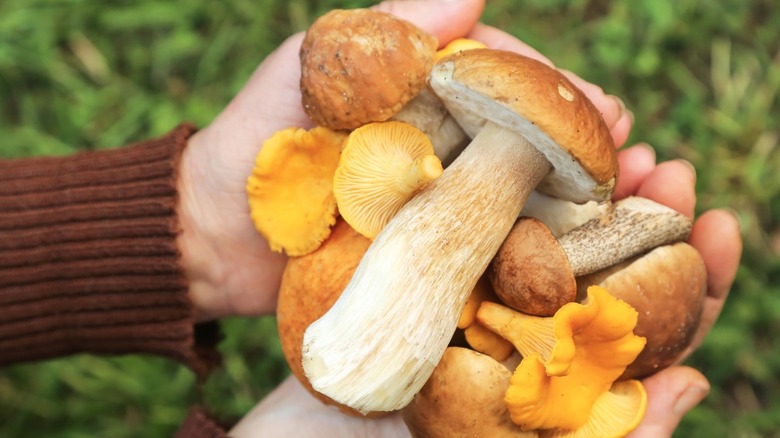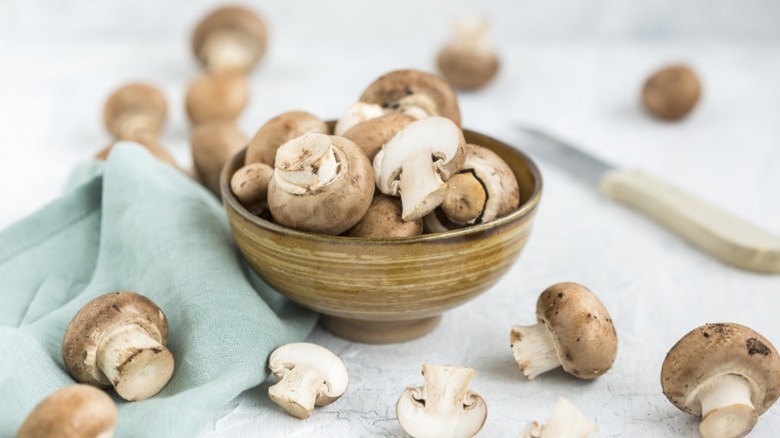This State Produces The Most Mushrooms
When you learned about the fifty states as a kid, you were probably given a couple of facts to remember each state by, some of which involved food. It's a lot easier for a child to remember that Idaho is the potato state than it is for them to remember, say, the 1892 labor riots in Coeur d'Alene. So Wisconsin is the cheese state, Maine is the lobster state, and so on and so forth. But what is the mushroom state? Who do we have to thank for our delicious little creminis and brawny, filling portobellos — and hopefully not any of the poisonous ones AI-generated mushroom guides would have us eat? The answer, as it turns out, is Pennsylvania — thanks in large part to one small town.
Pennsylvania produces 69% of all mushrooms in the United States, and in 2023, produced over 400 million pounds of mushrooms. Only California, a state three and a half times the size of Pennsylvania, comes close to the Keystone State in terms of mushroom production, producing a mere 82.5 million pounds of mushrooms in 2023. The center of this fungal empire is Kennett Square, a town of about 6,000 people in Pennsylvania's Chester County, but mushrooms are grown in other parts of the state, as well, mostly concentrated in the south and the southeast.
Kennett Square's mushroom prowess can be traced back to one florist
So how did an unassuming town like Kennett Square become such an important hub for mushroom growing? Part of it has to do with geography, to be sure. With plenty of farms in the surrounding area, it was easy to make compost from whatever couldn't be fed to the pigs. And Kennett Square isn't terribly far from a number of major East Coast cities, which was a blessing back in the days before you could ship mushrooms in temperature-controlled containers. But that may not have mattered if it weren't for one man taking the initiative.
Back in the late 19th century, a man named William Swayne, a farmer and florist who lived in Chester County, wanted to make use of the empty spaces in his greenhouses. He did a bit of research and found that mushrooms would be an ideal way to fill the space — and what's more, they were already being cultivated in Europe. He traveled abroad to conduct further research and gather spores for his collection, then returned to make a business out of it. Swayne's son, J. Bancroft, left college to devote himself to the family business and helped turn it into a major success — one which spawned many competitors and turned the small town into the hub of the entire American mushroom industry.

